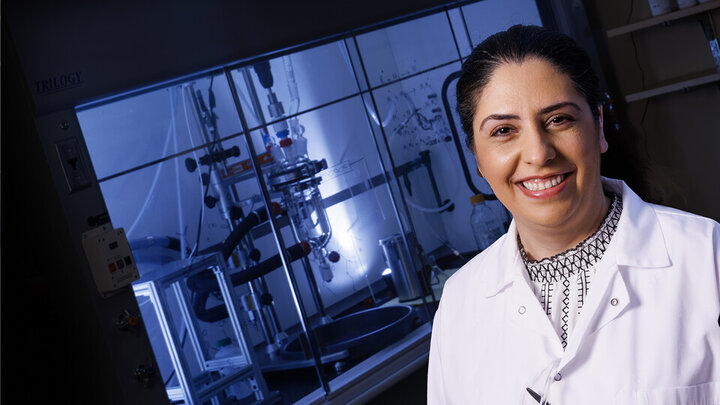Mona Bavarian, assistant professor of chemical and biomolecular engineering, has received a $576,802 grant from the National Science Foundation's Faculty Early Career Development Program for her research using artificial intelligence to develop an advanced manufacturing platform for polymer coatings.
These coatings are essential components in the fabrication of many electronic devices, including communications, computing, health care, military systems, transportation, energy and countless other applications. Polymers, especially those used in semiconductor technology, have stringent quality requirements, with scale-up, purity and production time presenting major challenges to their manufacturing.
Guided by artificial intelligence, Bavarian aims to replace traditional batch manufacturing with a more precise flow chemistry process. The switch would allow for better control of polymer properties and structures, reducing the defects and improving overall quality.




